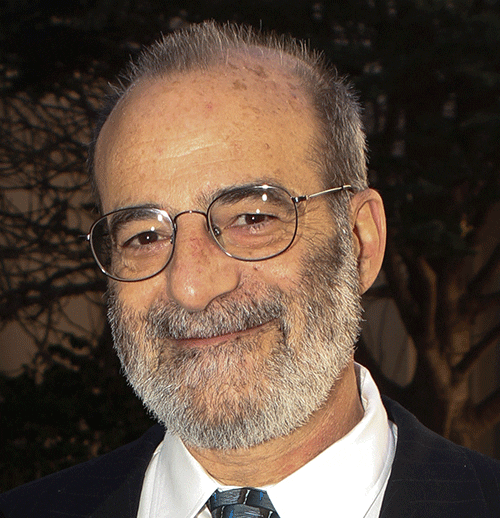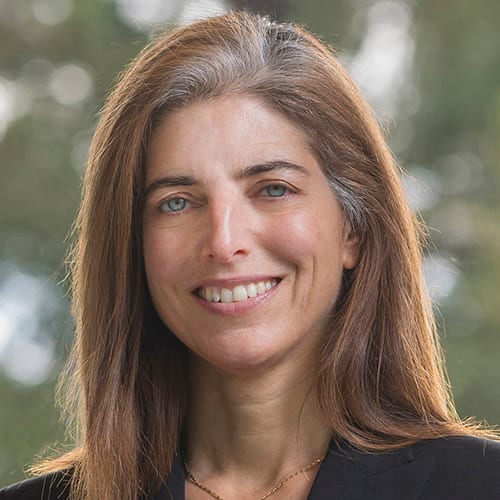One of the first major law schools to address and advance environmental law, UC Berkeley Law stands at the forefront of this important field. Students can take a broad range of courses, engage in cutting-edge research and writing at the top-ranked Ecology Law Quarterly journal, gain hands-on experience on behalf of real-world clients at our impactful Environmental Law Clinic, and collaborate on important projects with numerous student groups in the law school and across campus. The school offers myriad opportunities to connect with the dynamic Bay Area environmental law community while learning from our pioneering faculty experts.
Curriculum
At UC Berkeley Law, you’ll find a comprehensive range of Environment & Energy courses that equip you with the skills and knowledge to excel in the field. With new classes added regularly, our curriculum covers both longstanding and emerging issues, ensuring a deep and wide educational experience.
Recent offerings include:
 Introductory Courses
Introductory Courses
- Environmental Law & Policy
- Energy Law & Policy
- Introduction to Energy Law
- Introduction to Environmental Justice
E&E Electives
- Renewable Energy Law & Policy
- Land-Use Law
- Ocean & Coastal Law
- Energy Project Development & Finance
- International Environmental Law
- Water Law
- Environmental Justice
- Climate Change & the Law
- Public Lands and Natural Resources Law
- Environmental Transaction Law
- Environmental Law Writing Seminar
- The Law of Hazardous Waste
- Disasters and the Law
Foundational Public Law Courses
- Administrative Law
- Legislation & Statutory Interpretation
- Local Government Law
- Federal Indian Law
Explore courses offered in Environmental Law in Spring Semester 2025.
Center for Law, Energy & the Environment (CLEE)
 CLEE tackles climate change and other environmental challenges at the local to global scale through the development and implementation of equitable and effective legal and policy solutions. Our expert staff leverages the world’s leading public research university to engage community leaders, government, business, and other stakeholders; to lead timely and practical research initiatives; and to train leaders to take action on our most pressing environmental problems.
CLEE tackles climate change and other environmental challenges at the local to global scale through the development and implementation of equitable and effective legal and policy solutions. Our expert staff leverages the world’s leading public research university to engage community leaders, government, business, and other stakeholders; to lead timely and practical research initiatives; and to train leaders to take action on our most pressing environmental problems.
Environmental Law Clinic (ELC)
 The clinic tackles critical environmental health and environmental justice issues through litigation, administrative agency practice, legislation, and policy analysis on behalf of real-world clients. ELC provides students with hands-on experience and prepares them to be creative and effective environmental lawyers, to address the legal needs of underserved communities, and to make an environmental difference.
The clinic tackles critical environmental health and environmental justice issues through litigation, administrative agency practice, legislation, and policy analysis on behalf of real-world clients. ELC provides students with hands-on experience and prepares them to be creative and effective environmental lawyers, to address the legal needs of underserved communities, and to make an environmental difference.
Certificates of Specialization
 UC Berkeley Law offers two certificates of specialization in the fields of environmental and energy law. Both J.D. and LL.M. (traditional track) students are eligible to earn the certificates.
UC Berkeley Law offers two certificates of specialization in the fields of environmental and energy law. Both J.D. and LL.M. (traditional track) students are eligible to earn the certificates.
Certificate of Specialization in Environmental Law
The specialization in Environmental Law recognizes that students have gained advanced training in environmental, land use, and natural resources law.
Certificate of Specialization in Energy & Clean Technology Law
The specialization in Energy & Clean Technology Law demonstrates that students have gained advanced training in energy, intellectual property, and finance law.
Student-Initiated Legal Services Projects (SLPS)
 UC Berkeley Law SLPS enable you to develop lawyering and leadership skills while serving the community. Interact with clients and get valuable hands-on experience as early as your first year of law school, while earning pro bono hours and pursuing your passion. Choose from as many as 40 SLPS options, such as: Environmental Conservation Outreach, Clean Energy Leaders In Law, and Animal Law and Advocacy.
UC Berkeley Law SLPS enable you to develop lawyering and leadership skills while serving the community. Interact with clients and get valuable hands-on experience as early as your first year of law school, while earning pro bono hours and pursuing your passion. Choose from as many as 40 SLPS options, such as: Environmental Conservation Outreach, Clean Energy Leaders In Law, and Animal Law and Advocacy.
Field Placements
 The Field Placement Program offers qualified students the opportunity to expand their legal education beyond the bounds of the law school, both domestically and overseas, while earning academic credit. More than 20 environmentally related field placements have been offered locally, nationally, and around the world, at organizations such as the California Energy Commission, the U.S. Department of Agriculture, Earthjustice, the Greenlining Institute, and the Sierra Club Environmental Law Program.
The Field Placement Program offers qualified students the opportunity to expand their legal education beyond the bounds of the law school, both domestically and overseas, while earning academic credit. More than 20 environmentally related field placements have been offered locally, nationally, and around the world, at organizations such as the California Energy Commission, the U.S. Department of Agriculture, Earthjustice, the Greenlining Institute, and the Sierra Club Environmental Law Program.
Ecology Law Quarterly
 Established in 1971, Ecology Law Quarterly is among the oldest and most prestigious journals publishing environmental law scholarship. ELQ provides a forum for preeminent scholarship on groundbreaking environmental law topics, including renewable energy, environmental justice, and international environmental law.
Established in 1971, Ecology Law Quarterly is among the oldest and most prestigious journals publishing environmental law scholarship. ELQ provides a forum for preeminent scholarship on groundbreaking environmental law topics, including renewable energy, environmental justice, and international environmental law.
Student Organizations
 UC Berkeley Law has over 90 student organizations to meet the vast range of our students’ interests and affinities, including many that touch on environmental and energy law, such as the Berkeley Energy & Resources Collaborative (BERC Law) and Law Students for Climate Accountability at Berkeley (LS4CA).
UC Berkeley Law has over 90 student organizations to meet the vast range of our students’ interests and affinities, including many that touch on environmental and energy law, such as the Berkeley Energy & Resources Collaborative (BERC Law) and Law Students for Climate Accountability at Berkeley (LS4CA).
Fellowships
 Each year, Ecology Law Quarterly awards fellowships to law students slated to work with a public interest organization or in the public sector for the summer. The fellowships are awarded to second year students, who need not necessarily be members of ELQ.
Each year, Ecology Law Quarterly awards fellowships to law students slated to work with a public interest organization or in the public sector for the summer. The fellowships are awarded to second year students, who need not necessarily be members of ELQ.
Spotlight on Students & Alumni
Related News & Events
Environment & Energy News
Related Events
There are no upcoming events scheduled at this time. Check back later!































